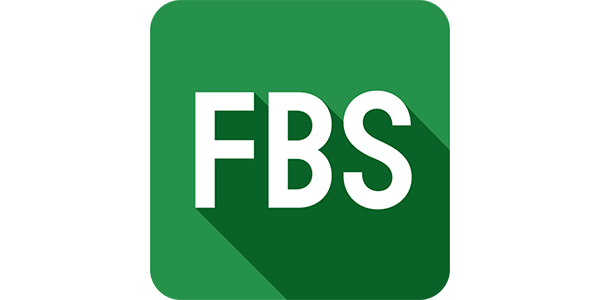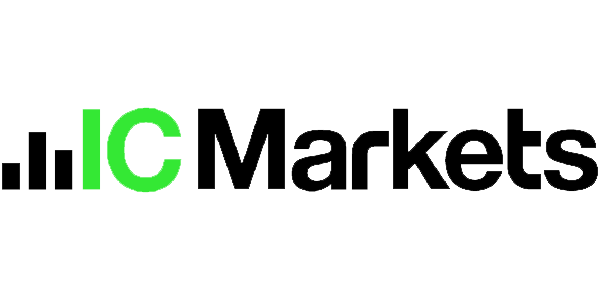List of The Best Platform for Trading
Here’s a quick comparison of the best trading platform based on their compatibility and market access.
| Best For | Commision | Min Dep | Leverage | Platforms | ||
|---|---|---|---|---|---|---|
| Beginners, Professionals, Active Traders | From $6 per lot | $100 | Up to 1:500 | MetaTrader 4 MetaTrader 5 Ctrader | ||
| Beginners, Active Traders | No commission (for Standard accounts) | $5 | Up to 1:1000 | MetaTrader 4 MetaTrader 5 | ||
| Beginners, Professionals, Active Traders | From $5 per lot | $100 | Up to 1:400 | AvaTradeGo MetaTrader 4 MetaTrader 5 | ||
| Beginners, Copy Traders | No commission | $200 | Up to 1:30 (1:5 for crypto) | eToro Platform MT4 MT5 | ||
| Beginners, Active Traders, Scalpers | No commission | $1 | Up to 1:2000 | MT4 MT5 WebTrader Exness Trade App | ||
| Beginners, Professionals, Active Traders | No commission (for Standard accounts) | $1 | Up to 1:3000 | MetaTrader 4 MetaTrader 5 | ||
| Beginners, Active Traders, Scalpers | From $5 per lot | $100 | Up to 1:50 | MetaTrader 4 FOREX.com Web Trader | ||
| Beginners, Active Traders, Scalpers | From $4 per lot | $100 | Up to 1:500 | MetaTrader 4 MetaTrader 5 cTrader FxProEdge | ||
| Beginners, Active Traders, Scalpers | No commission | $200 | Up to 1:1000 | MetaTrader 4 MetaTrader 5 WebTrader | ||
| Beginners, Professionals, Active Traders | From $6 per lot | $5 | Up to 1:1000 | MetaTrader 4 MetaTrader 5 Web Terminal Multi Terminal | ||
| Professionals, Active Traders, Scalpers | From $3 per lot | $200 | Up to 1:500 | MetaTrader 4 MetaTrader 5 cTrader | ||
| Beginners, Active Traders | No commission | $0 | Up to 1:200 | MetaTrader 4 ProRealTime WebTrader | ||
| Beginners, Active Traders, Proffesionals | No commission | $1 | Up to 1:1000 | MetaTrader 4 MetaTrader 5 | ||
| Beginners, Professionals | No commission on standard accounts | $10 | Up to 1:1000 | IQ Option Platform Mobile App | ||
| Active Traders, Beginners | No commission | $1 | Up to 1:50 | MetaTrader 4 OANDA Platform | ||
| Beginners, Active Traders, Scalpers | No commission on standard accounts | $25 | Up to 1:1000 | MetaTrader 4 MetaTrader 5 OctaTrader | ||
| Beginners, Active Traders, Scalpers | No commission | $200 | Up to 1:500 | MetaTrader 4 MetaTrader 5 cTrader | ||
| Active Traders, Scalpers | No commission | $10 | Up to 1:2000 | MT4 MT5 R StocksTrader | ||
| Inexperienced and Active Traders, Scalpers | From $2 per lot | $100 | Up to 1:500 | MetaTrader 4 MetaTrader 5 | ||
| Beginners, Proffesionals | No commission | $5 | Up to 1:1000 | MetaTrader 4 MetaTrader 5 |
UAE Market Overview
Economic & Growth Landscape
- The UAE economy continues its push toward diversification, with non-oil sectors expanding strongly. In Q1 2025, non-oil activity grew by 5.3 %, while overall real GDP expanded by 3.9 %.
- GDP growth forecasts for 2025 are optimistic: estimates point to around 3.2 % to 4.8 % growth, driven by trade, infrastructure, tourism, and investment inflows.
- The UAE’s long-term economic plan targets that more than 70 % of GDP will come from non-oil sectors by 2030, reflecting sustained government commitment to transformation.
Financial & Capital Markets Structure
- The UAE has two main securities exchanges under the Securities and Commodities Authority (SCA): Dubai Financial Market (DFM) and Abu Dhabi Securities Exchange (ADX).
- DFM and Nasdaq Dubai often collaborate and innovate in listings, derivatives, and cross-market connectivity.
- The regulatory framework is strengthened by free-zone financial regulators as well (e.g. DFSA in Dubai’s DIFC, FSRA in ADGM) which add extra layers of oversight for brokers in those jurisdictions.
Forex & Currency Dynamics
- The UAE Dirham (AED) is pegged to the US dollar, which adds stability to exchange rates for domestic and regional traders.
- The Central Bank of the UAE publishes official exchange rates daily against 70+ global currencies, giving transparent reference rates for conversions.
- Forex and CFD trading are legal in the UAE, but brokers must operate under proper licensing (either mainland SCA license or jurisdictional free-zone regulators).
Key Strengths, Risks & Trends
Strengths & Opportunities
- Strategic hub: UAE’s position between Asia, Europe, and Africa gives it a natural advantage for capital flows and trading activity.
- Tax incentives: For many individuals and investors, the absence of personal income tax or capital gains tax (in many cases) is a benefit for trading.
- Strong infrastructure: Reliable connectivity, robust banking sector, and advanced financial services support an active trading environment.
- Investor confidence & FDI: The UAE continues to attract foreign investment and capital flows, reinforcing liquidity and financial market depth.
Risks & Challenges
- Regulatory fragmentation: Brokers operating under different jurisdictions (mainland vs free zone) must navigate varied rules; the choice may affect client protections.
- Conversion and currency risk: Even though AED is stable, if your broker base currency is USD or EUR, conversion spreads or fx costs may eat into profits.
- Volatility & leverage risk: As with any forex/CFD market, high leverage and market swings are double-edged — they can magnify losses as much as gains.
- Local recourse limitations: If a broker is headquartered outside the UAE or regulated elsewhere, local traders may face difficulty in dispute resolution.
Popular Trading Instruments in the UAE
The UAE offers traders access to both local and global markets. Below are the most widely traded instruments among residents and expatriates in Dubai, Abu Dhabi, and other emirates.
| Instrument | Why It’s Popular in UAE | Notes |
|---|---|---|
| Forex Majors | High liquidity, stable USD/AED peg | AED not widely available as pair |
| Oil & Gas | UAE is an oil exporter; regional relevance | Highly volatile, tied to global demand |
| Gold & Silver | Dubai is a global gold trading hub | Popular for hedging inflation |
| Indices | Exposure to global & Gulf economies | DFM & ADX provide local opportunities |
| Stocks | Local blue-chips + global tech stocks | Access via DFM, ADX, or CFDs |
| Cryptocurrencies | Rising adoption, supported by VARA | High risk, high volatility |
| ETFs | Diversified portfolios at low cost | Growing but still less liquid regionally |
Forex / Currency Pairs
- Major pairs: EUR/USD, GBP/USD, USD/JPY — high liquidity and tight spreads.
- Crosses: EUR/GBP, AUD/JPY, etc., for diversification.
- AED pairs: While the UAE dirham is pegged to the US dollar, direct AED pairs are less common on retail platforms. Most traders use USD or EUR as base currencies.
Commodities
- Crude Oil (Brent & WTI): Especially relevant due to the UAE’s role as a major oil producer.
- Gold & Silver: Safe-haven assets popular among both local and international traders in Dubai (a global gold hub).
- Natural Gas & Industrial Metals: Available via CFDs on many international brokers.
Indices
- Global indices: S&P 500, NASDAQ, FTSE 100, DAX, Nikkei 225 — offering exposure to broad market movements.
- Regional indices: DFM General Index (Dubai Financial Market), ADX General (Abu Dhabi Securities Exchange), and other Gulf benchmarks provide local exposure.
Stocks & Equities
- Local UAE stocks: Listed on the Dubai Financial Market (DFM) and Abu Dhabi Securities Exchange (ADX), including major companies like Emaar, Etisalat, and First Abu Dhabi Bank.
- Global stocks: Brokers offer access to US, European, and Asian equities, either as CFDs or direct shares.
Cryptocurrencies
- Bitcoin (BTC), Ethereum (ETH), and other major altcoins are popular among younger UAE traders.
- The UAE has become a hub for blockchain and digital assets, supported by Dubai’s Virtual Assets Regulatory Authority (VARA).
- Trading is usually via regulated crypto exchanges or CFDs offered by licensed brokers.
ETFs & Funds
- Exchange-Traded Funds (ETFs) are gaining traction as they allow diversified exposure (technology, energy, regional indices) at low cost.
- Both international and regional ETFs are accessible to UAE traders.
Key Criteria for UAE Traders
When you’re based in the UAE, your ideal broker/platform must meet both global standards and UAE-specific needs. Use the following criteria to guide your selection:
- Regulation & Licensing within UAE / Free Zones
- Look for brokers licensed by the Securities & Commodities Authority (SCA) for mainland operations.
- If the broker is in a financial free zone, check for licensing under DFSA (DIFC) or FSRA (ADGM / Abu Dhabi Global Market).
- Confirm the license is active and listed on the regulator’s public registry.
- Client Funds Protection & Segregation
- Brokers should maintain segregated accounts for client funds, separate from their own operational capital.
- They should follow AML / KYC / CFT rules strictly.
- Capital & Prudential Requirements
- The broker should meet minimum capital requirements imposed by UAE regulators to ensure they have financial strength.
- Risk management, audit, compliance systems should be robust and transparent.
- AED Support & Local Banking / Funding Options
- Ability to deposit / withdraw in UAE Dirhams (AED) or via UAE banks, to avoid currency conversion costs.
- Support for local payment methods, and faster transfers for UAE residents.
- Islamic / Swap-Free Account Option
- Since many traders in the UAE follow Sharia law, the broker should offer swap-free / Islamic accounts where no overnight interest is charged.
- Transparent Pricing, Low Costs & Execution Quality
- Transparent display of spreads, commissions, and overnight fees.
- Tight spreads and low commissions are essential, especially on major currency pairs.
- High execution speed, minimal slippage, good liquidity—especially around news times.
- Platform Features & Device Compatibility
- Support for desktop, web, and mobile (iOS / Android) versions.
- Advanced charting, indicators, backtesting, algorithmic trading, copy-trading or social trading tools (if relevant).
- Reliability under heavy load / volatile sessions.
- Customer Support & Localization
- Support in Arabic and English, with availability during UAE business hours.
- Local or regional support presence (a UAE phone number or office) is a plus.
- Regulatory & Legal Recourse for UAE Clients
- If your broker is regulated locally (SCA / DFSA / FSRA), you may have better recourse in case of disputes or misconduct.
- Check what mechanisms exist (complaint handling, arbitration, enforcement) under the relevant regulator.
- Reputation, Track Record & Transparency
- Look for brokers with good reviews, no major scandals, and a clean public record.
- Read independent reviews, check for disciplinary actions, and see how long they’ve been operating.
Top Forex Brokers Serving UAE in 2025
Here are some of the brokers frequently rated highly for UAE traders (with caveats):
| Broker | Highlights / Strengths | Drawbacks / Considerations |
|---|---|---|
| IG | Local DFSA presence; broad asset range; strong platforms and research. | Costs can be higher for certain instruments; AED support may vary. |
| Pepperstone | Well-known globally, tight spreads, supports MT4/MT5. | Ensure local deposit/withdrawal paths; base currency conversion issues. |
| FP Markets | Strong trading conditions, raw spread accounts, good reputation. | May lack full local licensing in UAE; check support in Arabic. |
| AvaTrade | Good for social / copy trading, regulated, decent platform set. | Spread/commission structure might be less competitive than pure ECN brokers. |
| XM | Flexible accounts, educational resources, decent global reputation. | AED deposit/withdrawal paths might be limited; check conversion costs. |
| Plus500 | Clean, intuitive interface; supported in UAE according to broker listings. | Less powerful tools for advanced traders; limited customized features. |
| Saxo | Strong institutional-grade platform and global reach. | Higher fees; may not always support local banking/dirham conversions. |
| Swissquote | Strong reputation, multi-asset capabilities, local credibility. | Higher minimums and fees compared to some alternatives. |
Comparison & Suggested Picks
- If you want local regulation, IG is often a front-runner because of its DFSA-regulated presence in UAE.
- If you prioritize low spreads and ECN execution, Pepperstone, FP Markets, or XM in raw/ECN mode are strong options.
- For ease of deposit/withdrawal in AED or via UAE banks, check if a broker supports local banking channels — this can be a deciding factor.
- For copy/social trading, AvaTrade (with its network) and others may shine more than strict ECN brokers.
- For serious traders needing advanced tools, Saxo or IG may offer more mature platforms, but with higher cost.
Strengths & Weaknesses of Forex Trading in the UAE
Strengths
- Strategic Global Hub
- The UAE sits between Asia, Europe, and Africa, making it a natural crossroads for capital and trading activity.
- Dubai and Abu Dhabi serve as financial centers with advanced infrastructure.
- Stable Currency (AED Peg to USD)
- The UAE Dirham (AED) is pegged to the US dollar, which provides exchange rate stability and predictability in forex transactions.
- Tax Benefits
- No personal income tax or capital gains tax on trading profits in most cases, making it attractive for residents and expatriates.
- Robust Financial Infrastructure
- Reliable internet, advanced banking systems, and free zones like DIFC (Dubai International Financial Centre) and ADGM (Abu Dhabi Global Market) offer well-regulated trading environments.
- Islamic / Swap-Free Accounts Widely Available
- Many brokers provide Sharia-compliant trading accounts tailored for UAE traders.
- Regulatory Framework
- Oversight by DFSA, FSRA, and SCA ensures growing investor protection and legitimacy in financial markets.
Weaknesses
- Regulatory Fragmentation
- Brokers may operate under multiple jurisdictions (DFSA, FSRA, SCA, or offshore), leading to confusion and varying levels of investor protection.
- Conversion & Funding Issues
- Not all brokers support AED deposits/withdrawals, meaning traders often face USD or EUR conversions with added fees.
- High Leverage Risks
- While leverage is attractive, it can magnify losses. Many brokers offer high leverage that inexperienced traders may misuse.
- Limited Local Recourse with Offshore Brokers
- If trading under an offshore entity, resolving disputes or claims can be challenging for UAE residents.
- Potential for Over-Marketing & Scams
- The UAE’s appeal as a wealthy hub attracts unregulated or scam brokers. Traders must carefully verify licenses.
- Volatility Exposure
- Despite AED stability, trading involves global currencies, commodities, and indices, where volatility can be extreme.
How to Choose a Trading Platform in UAE
When selecting a trading platform (forex, CFDs, etc.) while based in the UAE, you should go beyond just “nice interface.” The right platform must suit UAE-specific needs and global best practices. Use the following criteria and steps:
Verify Regulation & Licensing
- Ensure the broker or platform is licensed under UAE authorities such as SCA (Securities & Commodities Authority) for mainland operations.
- If the broker is based in or serves UAE clients via a free zone (e.g. DIFC, ADGM), check that it’s regulated by zone regulators like DFSA (Dubai) or FSRA (Abu Dhabi).
- Confirm the license is valid and listed publicly in the regulator’s registry.
Evaluate Platform Performance & Execution Quality
- The platform should offer fast order execution, minimal slippage, especially during news or volatile times.
- It must be stable and robust, not freezing or lagging during high market stress.
- Multi-device support is essential: desktop (Windows/Mac), web (browser trading), and mobile (iOS/Android).
- Test it on a demo account under real market conditions.
Check Funding & Currency Support (AED / UAE Banks)
- Preference for platforms that allow deposits and withdrawals in UAE Dirhams (AED) or direct UAE bank transfers to avoid costly currency conversions.
- If AED support isn’t available, understand how conversion to base currency (USD, EUR, etc.) will affect costs.
- Verify deposit/withdrawal speed and fees from UAE banks.
Transparent Pricing & Low Costs
- The platform must clearly show spreads, commissions, swap/overnight fees, and any hidden charges.
- Compare “raw / ECN / institutional” account types vs “standard / fixed” accounts.
- Be cautious about wide spreads during illiquid hours or for exotic pairs.
Tools, Charting & Technical Capabilities
- Full set of charting tools, multiple timeframes, indicators, drawing tools, and ability to attach orders from charts.
- Support for algorithmic trading / Expert Advisors / APIs if you use automated strategies.
- Strategy testing or backtesting capability is a plus.
- Alerts, notifications, news feeds integrated into the platform are valuable.
Islamic (Swap-Free) / Sharia Compliance Option
- Since many traders in the UAE prefer Sharia-compliant trading, ensure the broker offers Islamic / swap-free accounts.
- Check the terms—how the broker compensates for the absence of swap interest (e.g., via commission).
Customer Support, Languages & Local Presence
- Look for support in English and Arabic.
- Prefer brokers that have UAE or regional support offices or phone numbers.
- Prompt customer service during UAE business hours is essential for resolving issues quickly.
Security, Account Protection & Risk Management
- The platform should have 2FA (two-factor authentication), encryption, and secure login protocols.
- Client funds should be in segregated accounts (broker’s funds separate from client funds).
- Check whether the broker provides negative balance protection.
- Understand margin rules, automatic liquidations, leverage caps, and how they’re enforced in your account.
Reputation & Track Record
- Research user reviews, look for complaints or regulatory actions.
- Check how long the broker has been operating, and how transparent they are in disclosures.
- Try small deposits first to test the system’s behavior.
Tips for UAE Traders
Trading in the UAE offers many advantages, but to succeed you should apply discipline and adapt to local conditions. Here are key tips:
Trade with Regulated Brokers
- Always choose brokers licensed by DFSA, FSRA, or SCA, or at least by top-tier global regulators (FCA, ASIC, CySEC).
- Avoid unregulated offshore platforms — they may not provide legal protection in case of disputes.
Use AED-Friendly Accounts Where Possible
- Funding accounts in UAE Dirhams (AED) or via local banks reduces conversion fees.
- If your broker doesn’t support AED, compare conversion rates carefully before depositing.
Request an Islamic (Swap-Free) Account if Needed
- Most brokers in the UAE offer Sharia-compliant accounts on request.
- Review the terms closely — some charge alternative admin fees instead of swaps.
Start Small and Test Withdrawals
- Begin with a demo account, then a small live deposit.
- Test withdrawals early to ensure your broker processes funds quickly through UAE banking systems.
Manage Leverage Carefully
- UAE brokers often allow high leverage, but excessive leverage can magnify losses.
- Use conservative ratios and always apply stop-loss orders.
Diversify Instruments
- Don’t rely only on forex pairs. Consider gold, oil, indices, and stocks, which are actively traded by UAE investors.
- Oil is particularly relevant given its importance to the UAE economy.
Keep Updated on Local & Global Regulations
- UAE regulators frequently update compliance rules in line with global standards.
- Monitor announcements from the DFSA, FSRA, and SCA to avoid non-compliance issues.
Use Secure Payment Methods
- Stick to trusted channels like bank transfers, credit/debit cards, or approved e-wallets.
- Be cautious with unfamiliar payment processors to avoid scams.
Prioritize Education & Continuous Learning
- Many top brokers in UAE provide free webinars, tutorials, and research tools.
- Leverage these resources to improve trading strategies and market knowledge.
Conclusion
The UAE stands out as one of the most attractive environments for forex traders in the Middle East, thanks to its stable economy, advanced financial infrastructure, and tax benefits. However, the right broker depends on your trading style, capital, and personal requirements. For UAE residents, the key is to prioritize brokers that combine strong regulation, AED deposit/withdrawal support, Islamic (swap-free) accounts, and reliable customer service in Arabic and English.
FAQs
Is forex trading legal in the UAE?
Yes. Forex trading is legal in the UAE as long as it is done through brokers licensed by recognized authorities such as the Securities and Commodities Authority (SCA), the Dubai Financial Services Authority (DFSA) in DIFC, or the Financial Services Regulatory Authority (FSRA) in ADGM.




















